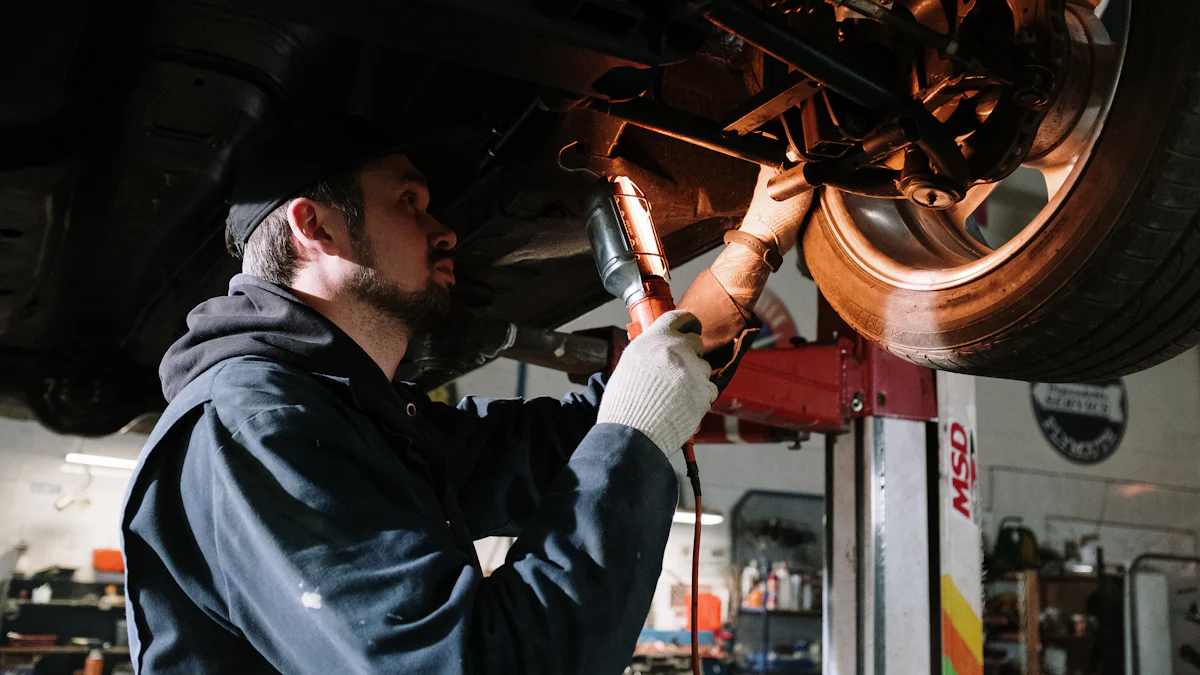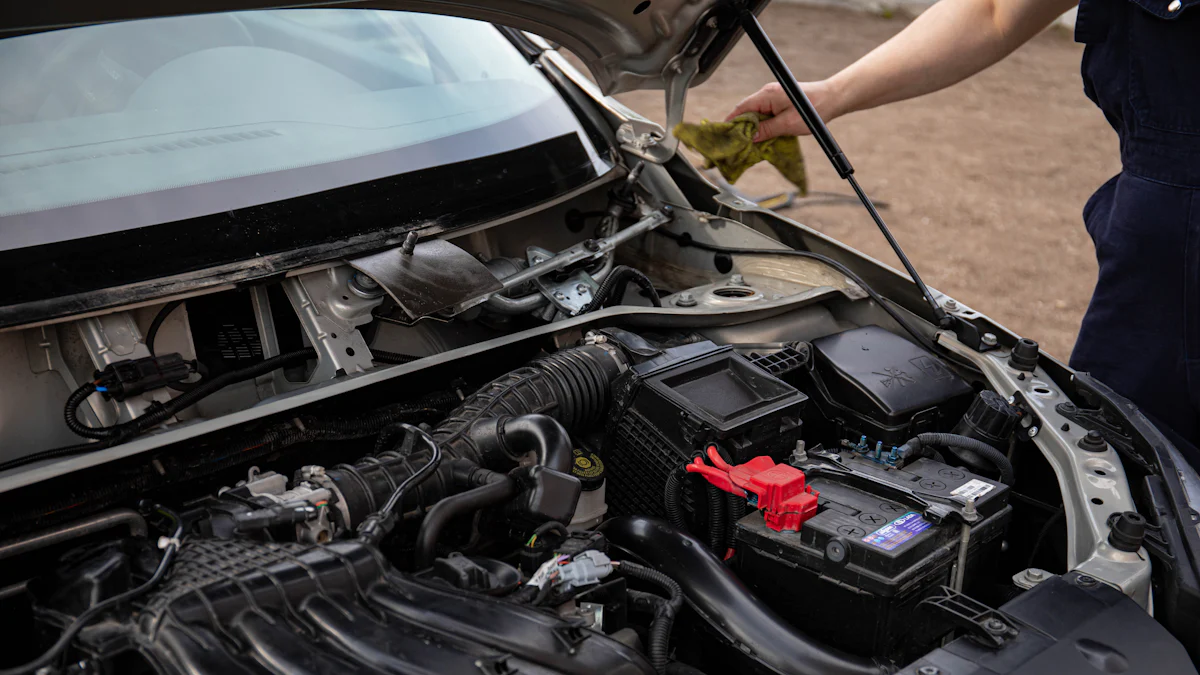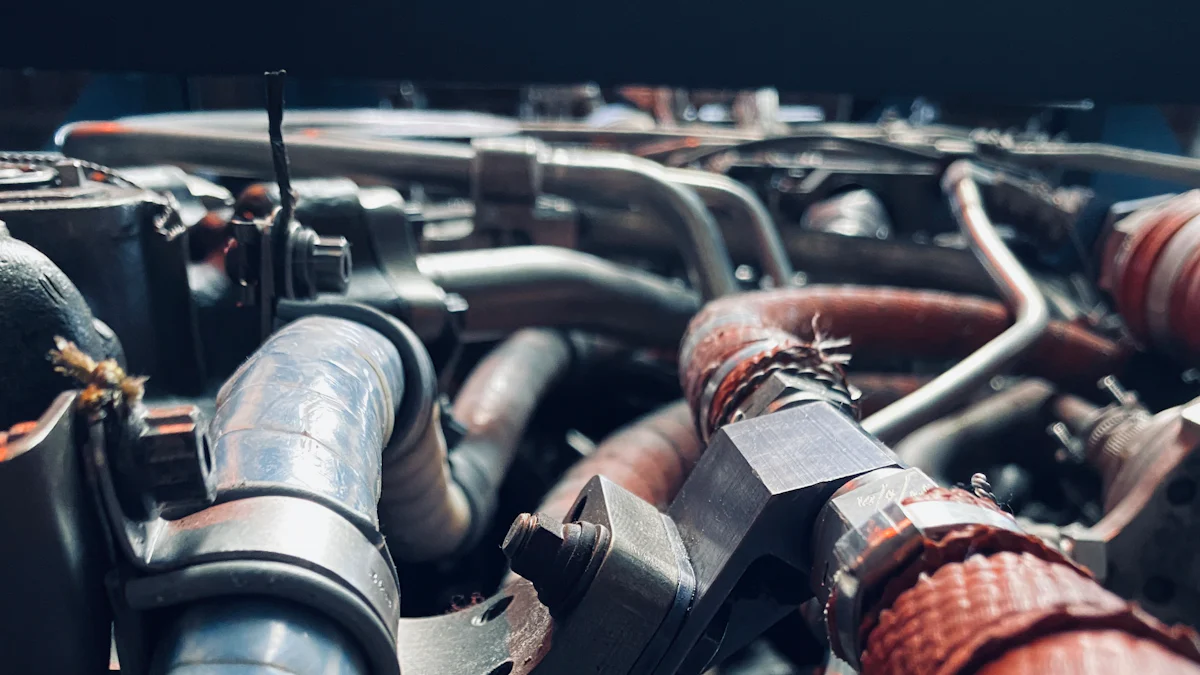
The Engine exhaust manifold in a car is a vital component that ensures the efficient removal of engine exhaust. Understanding the importance of this part is key to maintaining optimal vehicle performance. When considering how much to replace exhaust manifold, factors such as labor costs, parts expenses, and overall variations come into play. It’s crucial to grasp the significance of this process and its impact on your vehicle’s functionality.
Factors Affecting Exhaust Manifold Replacement Costs

When considering the costs associated with replacing an exhaust manifold, several factors play a significant role in determining the final expenses. Understanding these elements is crucial for individuals looking to undergo this repair process efficiently and economically.
Labor Costs
The labor costs involved in replacing an exhaust manifold can vary based on different regions and the expertise of the mechanic performing the task. It’s important to note that labor rates may differ significantly depending on where you are located and the skill level of the professional handling your vehicle.
Regional Variations
Labor costs for exhaust manifold replacement can fluctuate due to regional differences in pricing structures. For instance, urban areas might have higher labor rates compared to rural locations. Being aware of these variations can help you budget more effectively for this essential repair.
Mechanic Expertise
The expertise of the mechanic working on your car also influences labor costs. Highly skilled professionals may charge more for their services, but they often provide superior workmanship and efficiency. On the other hand, less experienced mechanics might offer lower rates but could potentially compromise on quality.
Parts Costs
Apart from labor expenses, parts costs constitute a significant portion of the overall expenditure when replacing an exhaust manifold. The type of parts chosen, whether OEM or aftermarket, as well as the make and model of your vehicle, can impact these costs.
OEM vs Aftermarket
Choosing between Original Equipment Manufacturer (OEM) parts and aftermarket components is a critical decision that affects both quality and price. While OEM parts are designed specifically for your vehicle model, they tend to be more expensive. In contrast, aftermarket parts are more affordable but may vary in quality and compatibility.
Vehicle Make and Model
The make and model of your car directly influence the cost of replacement parts for the exhaust manifold. Certain vehicles require specialized components that are pricier than those used in more common models. Understanding these distinctions can help you anticipate potential expenses accurately.
Additional Costs
In addition to labor and parts costs, there are various supplementary expenses associated with replacing an exhaust manifold that should not be overlooked during budgeting.
Exhaust Manifold Work
Beyond just swapping out the old part for a new one, additional work such as addressing related issues or ensuring proper installation may incur extra charges. These tasks contribute to the overall cost but are essential for a comprehensive repair job.
Manifold Replacement Parts
Apart from the main component itself, other parts like gaskets, bolt kits, or studs may need replacement during this process. These smaller items collectively add to the total cost but are necessary for ensuring optimal functioning of your exhaust system.
Car Insurance Considerations
While car insurance typically does not cover routine maintenance or wear-and-tear repairs like exhaust manifold replacement, it’s worth checking if any policy benefits could offset some of these expenses indirectly. Understanding your coverage can provide financial reassurance during unexpected repair situations.
Detailed Cost Breakdown
Average Costs
When considering the average costs associated with replacing an exhaust manifold, it’s essential to understand the typical expenses involved in this process. On average, an exhaust manifold replacement can range from $1,167 to $1,265, covering both parts and labor costs. This figure provides a general overview of what individuals might expect when undertaking this crucial repair.
National Averages
National averages for exhaust manifold replacement costs offer valuable insights into the financial aspects of this maintenance task. The total cost typically amounts to around $634, with labor expenses averaging $335 and parts costing approximately $299. These figures serve as benchmarks for individuals planning or budgeting for such repairs.
Specific Examples
To delve deeper into the specifics of exhaust manifold replacement costs, it’s beneficial to explore real-world scenarios that highlight the variability in pricing. For instance, the cost for an exhaust manifold gasket replacement can fall within the range of $100 to $400, depending on various factors such as vehicle make and model, labor rates, and part quality. Understanding these specific examples can help individuals anticipate potential expenses accurately.
Cost Variations
Understanding the cost variations associated with replacing an exhaust manifold is crucial for making informed decisions regarding your vehicle maintenance. Factors such as service providers and repair locations can significantly impact the overall expenses incurred during this process.
Fixter Rates
One notable aspect influencing cost variations is the difference in rates offered by various service providers like Fixter. The cost of replacing an exhaust manifold with Fixter in 2024 ranges from $306 to $2,065, with an average expense of approximately $909. This variation underscores the importance of comparing prices and services offered by different providers before committing to a repair.
Independent Shops vs Dealerships
Another significant consideration when assessing cost variations is choosing between independent shops and dealerships for your exhaust manifold replacement needs. Independent shops may offer competitive pricing options tailored to individual budgets, while dealerships might provide specialized services at potentially higher costs. Understanding these differences allows car owners to select a service provider that aligns with their financial preferences and quality expectations.
Hidden Costs
In addition to visible expenses, there are often hidden costs associated with replacing an exhaust manifold that individuals should be mindful of when planning their budgets. These concealed expenditures can impact the overall affordability and feasibility of undergoing this essential repair.
Potential Additional Repairs
During the process of replacing an exhaust manifold, unforeseen issues or related damages may surface, necessitating additional repairs beyond the initial scope. Addressing these potential complications promptly is vital for ensuring comprehensive restoration of your vehicle’s functionality but may contribute to increased overall costs.
Long-term Costs
Considering the long-term implications of exhaust manifold replacement is crucial for understanding the full financial scope of this maintenance task. While immediate expenses cover parts and labor, it’s important to factor in any future maintenance requirements or system upgrades that could influence ongoing costs related to your vehicle’s exhaust system health.
Signs of a Bad Exhaust Manifold

Common Symptoms
When dealing with a bad exhaust manifold, several common symptoms may indicate the need for repair. According to 1A Auto, visible cracks, extremely loud noises from the exhaust, decreased fuel efficiency and performance, and a burning smell emanating from the engine bay are telltale signs that your exhaust manifold may be compromised.
- Visible cracks on the manifold can lead to exhaust leaks.
- Loud noises coming from the exhaust could signify severe issues.
- Reduced fuel efficiency and performance are indicators of potential problems.
- A burning smell originating from the engine bay should not be ignored.
Diagnostic Methods
To accurately determine if your vehicle’s exhaust manifold requires attention, specific diagnostic methods can be employed. As mentioned by 1A Auto, one effective approach is conducting a visual inspection to identify any visible damage or irregularities in the manifold.
Conducting a thorough visual inspection can reveal crucial information about the condition of your exhaust manifold.
Another diagnostic method involves seeking a professional diagnosis. When in doubt about the state of your car’s exhaust system, consulting an expert mechanic can provide valuable insights into any underlying issues that may require immediate attention.
Impact on Vehicle
The repercussions of neglecting a damaged exhaust manifold can extend beyond mere inconvenience. The team at 1A Auto emphasizes that engine damage and exhaust system complications are common outcomes associated with unresolved issues related to this critical component.
- Engine damage resulting from a faulty exhaust manifold can lead to extensive repairs.
- Compromised exhaust systems pose risks to both vehicle performance and environmental safety.
By recognizing these signs and promptly addressing any concerns related to your car’s exhaust system, you can mitigate potential damages and ensure optimal functionality for your vehicle.
Importance of Timely Replacement
When it comes to the engine and exhaust system, ensuring a timely replacement of a faulty exhaust manifold is paramount. Neglecting this essential maintenance task can lead to severe consequences that not only impact the vehicle’s performance but also pose risks to the driver and passengers. By understanding the significance of prompt action, car owners can safeguard their engine’s health and maintain the integrity of their exhaust system.
Preventing Further Damage
Preserving the longevity of your engine starts with proactive measures such as timely exhaust manifold replacement. A compromised manifold can expose the engine to harmful elements, potentially leading to costly repairs down the line. By prioritizing this crucial component, you are effectively safeguarding your engine’s protection against avoidable wear and tear.
Safeguarding your vehicle’s overall functionality also involves maintaining the integrity of its exhaust system. The exhaust manifold plays a vital role in directing harmful emissions away from the engine compartment, ensuring optimal performance. By addressing any issues promptly, you contribute to preserving your vehicle’s exhaust system integrity, promoting efficient operation and reducing environmental impact.
Cost Savings
While some may view exhaust manifold replacement as an additional expense, it actually presents an opportunity for long-term cost savings. By addressing minor issues promptly, you prevent them from escalating into major repairs that could significantly impact your wallet. Investing in timely replacement not only avoids costly fixes but also contributes to maintaining your vehicle’s value over time.
Avoiding major repairs through timely maintenance is a prudent financial decision that benefits both your budget and your vehicle’s overall condition. By addressing concerns early on, you mitigate the risk of extensive damage that could result in hefty repair bills. Prioritizing regular upkeep, including exhaust manifold replacement when needed, is a proactive approach that pays off in terms of sustained vehicle performance and reduced repair costs.
Safety Considerations
Beyond financial implications, timely exhaust manifold replacement also has significant safety considerations for drivers and passengers alike. A well-maintained exhaust system plays a crucial role in emission control, minimizing harmful pollutants released into the environment. By promptly replacing a faulty manifold, you contribute to cleaner air quality and reduce your vehicle’s carbon footprint.
Preventing exhaust leaks through timely replacement not only ensures optimal engine performance but also safeguards against potential health hazards associated with exposure to toxic fumes. Addressing issues promptly minimizes the risk of leaks that could compromise both vehicle functionality and passenger well-being. Prioritizing safety through proactive maintenance reflects a commitment to responsible driving practices and environmental stewardship.
In closing, the exhaust manifold stands as a critical component in maintaining a healthy engine and efficient exhaust system. Understanding the cost factors involved in its replacement underscores the importance of timely action to prevent further damage. By prioritizing regular maintenance and swift repairs, car owners can ensure both their vehicle’s longevity and passenger safety. Remember, neglecting issues related to the exhaust manifold can lead to costly consequences down the road. Stay proactive, safeguard your engine’s health, and drive with confidence.
Post time: Jun-12-2024



